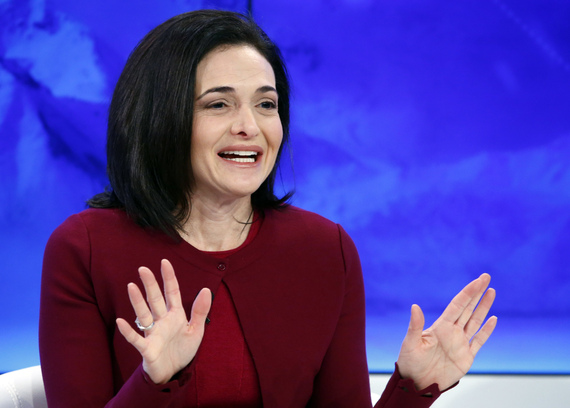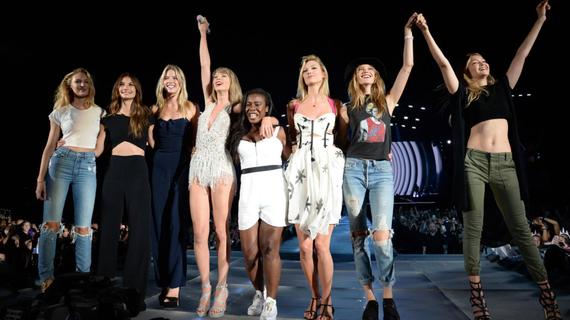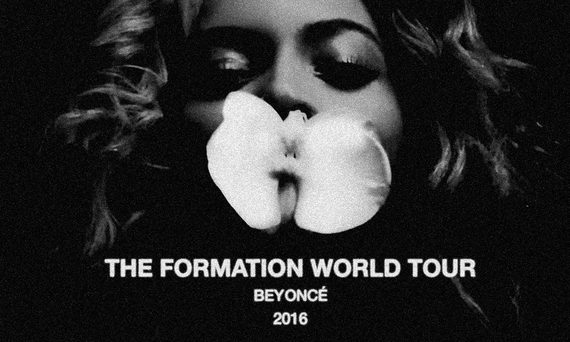There's a lot of girl power happening right now.
From pop icons and television writers, to entrepreneurs and tech executives, women are taking an even more noticeable stand for gender equality.
As a self-proclaimed feminist, I've noticed a particularly large increase in content aimed at empowering women. Despite being uncontrollable folded into the category of timely cultural trends, it's finally cool to be a feminist. But, what exactly does that mean?
A couple of weeks ago, I overheard a man say, "Feminism is commercialized. Companies don't actually care about women. Women want to be empowered, so companies are using that to market their products to women". Although pessimistic, such an argument is valid. However, his commentary made me ask: Is corporate marketing ultimately making the modern feminist movement inauthentic?
After thorough deliberation, I believe the answer is no. Corporate marketing is placing money and resources behind products and people that are empowering women, and it is making the movement more powerful.
Today's digital world is fueled by content and experiences. Brands are buying into culturally impactful moments in an effort to create authentic connections with consumers. Bridget Brennan, CEO of Female Factor, states "Women drive 70-80% of all consumer purchasing, through a combination of their buying power and influence." Therefore, women should be a priority to corporate marketers.
The Always ad campaign, "Like A Girl" is one of my favorite examples. Understanding that puberty decreases the self-esteem of most girls, the global company released the 2015 award-winning Super Bowl spot, turning what is commonly considered an insult thrown at adolescent girls into an overwhelmingly empowering message. Of course, their end goal is to sell tampons and pads. But, the truth is that a vast majority of women have been told that they are physically incapable, which is what allows them to relate so closely to the campaign. Adobe Marketing Cloud named the campaign "Best Performer" on the second screen, meaning it received the most engagement online during and after the Super Bowl.
This year, on Equal Pay Day, Facebook and Microsoft announced an end to the gender pay gap at their companies. In 2015, women held only 17% of Google's tech positions. At Microsoft, women made up just 27% of the overall workforce. The tech industry has a history of struggling to attract women and people of color into the workforce. By promising to pay women the same as their male counterparts, these digital companies are taking initiative and leading the way for gender equality within the tech space.
Many brands promoting gender equality are not delivering this message directly, but rather partnering with empowered female figures to expand the sentiment. As the power of major record labels has decreased over the past decade, corporations have stepped in to provide artists with the tools and freedom to produce tours and develop dynamic ways to engage with fans worldwide. American Express has partnered with massive stars, such as Taylor Swift and Beyonce, as well created platforms for upcoming female artists like Tori Kelly to both reinvent and redefine the landscape.
"We've been an ongoing partner of Billboard Women in Music, and it's one of favorite events of the year because of the awesome ways that they celebrate women in this industry," stated Walter Frye, Vice President of Global Experiential Marketing at American Express. "We were so excited to use that as a platform this year to announce our partnership with Tori Kelly and we're going to continue to tell the their stories and share the music of female artists as we go into 2016 and beyond."
American Express is also the official sponsor of Beyonce's Formation World Tour, starting April 27th. Through her grand performances, compelling visuals and candid commentary, Queen Bey has been one of the most vocal artists on racial and gender equality. Earlier this year, she released the song and video "Formation," which was widely praised for its political commentary. It is her partnership with brands, such as AMEX, that allow her to continue to use her art to make political statements.
We're going to continue to tell the their stories and share the music of female artists as we go into 2016 and beyond.
-Walter Frye, AMEX
Corporate brands have the capital and reach to make significant shifts in our cultural consciousness. In fact, it is their goal to be a part of culturally impactful moments that will organically bond the brand to its consumer. It is proven that today's consumers value brands that are authentic and altruistic. As a result, marketers have responded by connecting to people and messages that their customer cares about. Women care about gender equality. Should we encourage corporations to make a social impact when selling products? Or, should we be mindful that the goal of the message to make a monetary profit?
Bloomberg BusinessWeek referred to the branding and selling of feminism as "The Feel-Good Female Solidarity Machine," citing that women's empowerment conferences have make $13.4 billion per year in revenue. Most of these conferences are sponsored by large corporations, such as Hewlett-Packard and the NFL. These landmark partnerships are making women's empowerment more accessible to Americans and more digestible to those unfamiliar with women's rights issues. Where many believe brands taint the movement, these corporations are playing a major role in making feminism cool.



